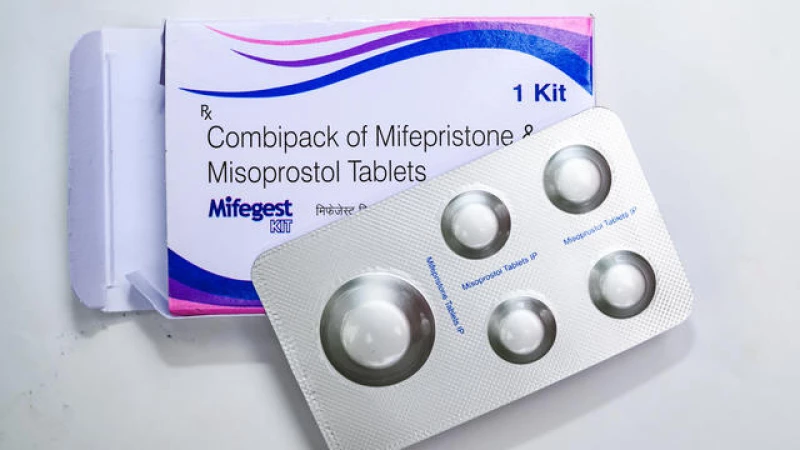Research reveals that more than six out of 10 abortions in the United States last year were completed using medication, a significant increase from 2020's 53%.
The Guttmacher Institute, an organization that advocates for abortion rights, reported approximately 642,700 medication-induced abortions occurred in the first full year following the U.S. Supreme Court's decision to overturn Roe v. Wade. Medication abortions made up 63% of all abortions within the formal healthcare system.
This data was made public on Tuesday, just a week before the Supreme Court is scheduled to hear arguments related to a case that could impact the accessibility of the abortion drug mifepristone, typically used alongside another pill in medication abortions.
In 2000, the Food and Drug Administration approved mifepristone for abortion procedures, endorsing it as a safe and efficient method for ending unwanted pregnancies. In early March, CVS and Walgreens, the two largest pharmacy chains in the country, announced their intentions to offer the medication to patients as soon as possible, following regulatory adjustments made by the FDA last year that permit retail pharmacies to distribute the pills.
The pharmacies' moves, which came at a time when abortion access has been restricted across parts of the U.S., drew praise from President Biden.
"The stakes could not be higher for women across America," Mr. Biden said in a statement earlier this month. "I encourage all pharmacies that want to pursue this option to seek certification."
The nationwide swing toward abortion pills over surgery has caused anti-abortion rights advocates to sue the FDA over the drug's approval and to stage protests outside of pharmacies.
Addressing Tuesday's statistics, Guttmacher researcher Rachel Jones said the increase wasn't a surprise.
"For example, it is now possible in some states, at least for health care providers, to mail mifepristone to people in their homes," Jones said, "so that saves patients travel costs and taking time off work."
Guttmacher's data, which is collected by contacting abortion providers, doesn't count self-managed medication abortions that take place outside the health care system, or abortion medication mailed to people in states with abortion bans.
Dr. Grace Ferguson, an OB-GYN and abortion provider in Pittsburgh who isn't involved with the research, said the COVID-19 pandemic and the overturning of Roe v. Wade "really opened the doors" for medication abortions done through telehealth.
In states where abortion remained legal, Ferguson emphasized that "telehealth was a really good way of accommodating that increased volume," noting a rise in people traveling from more restrictive states.
Data from Guttmacher reveals a steady increase in medication abortions since the approval of mifepristone by the Food and Drug Administration in 2000. This drug, which blocks the hormone progesterone, prepares the uterus to respond to the contraction-causing effects of misoprostol. The two-drug regimen is commonly used to terminate pregnancies up to 10 weeks gestation.
The ongoing Supreme Court case could potentially restrict access to mifepristone through mail and impose additional limitations, even in states where abortion is legal.
This recent research coincides with Vice President Kamala Harris' visit to a Minnesota women's reproductive health clinic that offers abortion services. According to her office, this visit marked the first time a sitting president or vice president has visited a reproductive health clinic.






